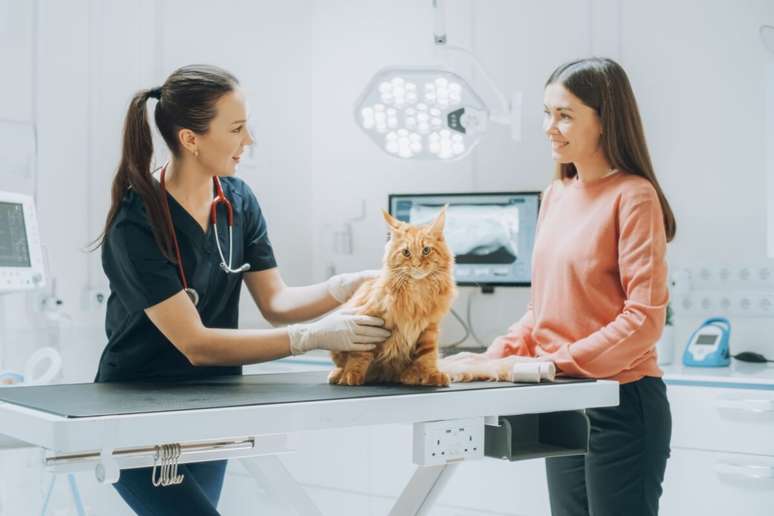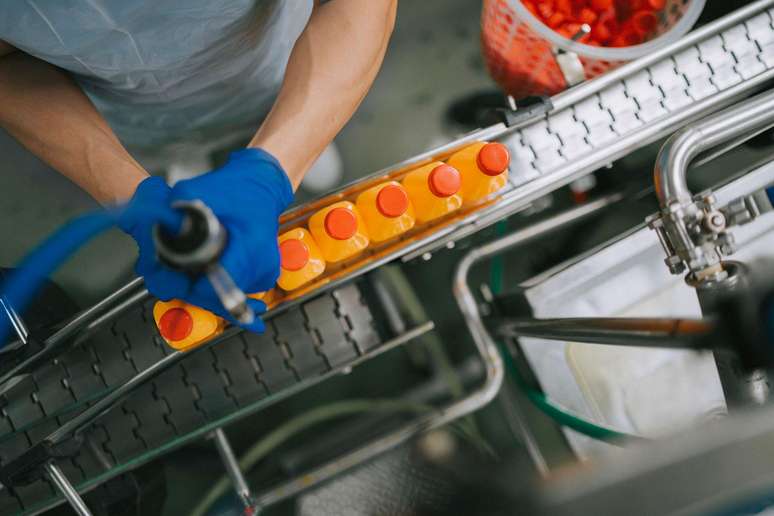It is important to pay attention to the symptoms and take your pet to the vet as soon as possible.
Poisoning is a serious condition that occurs when an animal comes into contact with, ingests, inhales, or absorbs toxic substances that can cause harm to its body. This situation can put a strain on the life of the pet at risk, as many toxins affect vital organs such as the liver, kidneys, nervous and cardiovascular systems.
Generally, accidental poisoning of dogs occurs due to the ingestion of toxic plants and common foods such as chocolate, onion, garlic and avocado. “Moreover, cleaning products and rat poison are also among the causes of poisoning,” warns Tiago Almeida, coordinator of the Veterinary Medicine course at the Faculdade Anhanguera.
Cats, although they face similar risks to other animals, require special care due to their unique sensitivity to certain substances. Their metabolism is different from that of other species, making them unable to efficiently process some toxins. An example is paracetamol, a medicine that is safe for humans and also tolerated by dogs in specific doses, but it is highly toxic to felines and can cause serious damage to the liver and red blood cells, rapidly leading to their death.
Symptoms of poisoning
Symptoms of poisoning vary greatly and can include diarrhea, vomiting, seizures and fainting. Each type of poisoning acts differently, affecting different systems, such as the nervous, digestive, respiratory and urinary systems.
What to do in case of poisoning
In a situation of suspected poisoning, the first step is to remove the animal from contact with the substance and take it to the vet immediately. “It is essential that owners do not try to diagnose the situation on their own. When they notice a change in the animal’s behavior, they should immediately seek specialized assistance,” advises Tiago Almeida.
Additionally, guardians should avoid some of them practices common conditions that can make the situation worse. “You should never induce vomiting in your animal, give milk, drugs or force food or water to eat. Quick communication with a veterinarian is essential,” says the expert.
A detailed description of the symptoms is essential for the professional to conduct adequate treatment. Additionally, the owner should pay attention to any signs of toxic substances, such as chewed plants or food remains, and take them to the vet together with the animal.

Treatment for poisoning
The diagnosis of poisoning is carried out by professionals who will often have to resort to laboratory and imaging tests for an effective treatment, which varies depending on the type of substance ingested and is always defined by the veterinarian. Tiago Almeida explains that, in many cases, there are no antidotes available and treatment focuses on removing the toxic substance from the animal’s body and providing supportive therapy.
Prevent poisoning
To prevent poisoning, the professor emphasizes that owners should consult their veterinarian about it foodmedicines and plants can be harmful. The list is extensive and can vary depending on the species. Identifying poisoning symptoms quickly is vital.
By Bianca Rieg
Source: Terra
Ben Stock is a lifestyle journalist and author at Gossipify. He writes about topics such as health, wellness, travel, food and home decor. He provides practical advice and inspiration to improve well-being, keeps readers up to date with latest lifestyle news and trends, known for his engaging writing style, in-depth analysis and unique perspectives.








![More beautiful life in advance: What awaits you on Wednesday, July 16, 2025, in an episode of 377 [SPOILERS] More beautiful life in advance: What awaits you on Wednesday, July 16, 2025, in an episode of 377 [SPOILERS]](https://fr.web.img6.acsta.net/img/53/5a/535a58f181f2f8d5e35ce7cf5fbbd28e.jpg)
